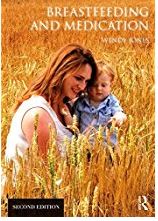It is normal during lactation to notice that your hair becomes thinner or may even appear to drop out in significant levels. In pregnancy we grow more hair and the apparent loss is usually just a return to normal.
It may however, be a sign of thyroid deficiency so always worth checking with your doctor and requesting a blood test to check levels, just in case. Biotin can interfere with thyroid tests so better avoided until this has been ruled out as a cause of hair thinning (October 2023 https://www.nice.org.uk/guidance/ng145/chapter/Update-information).
Most of the commercially available products which claim to thicken, strengthen, promote growth of hair contain biotin in addition to the normal vitamins and minerals.
Symptoms of biotin deficiency include thinning hair, skin rash, and depression. The recommended daily dose of biotin for a lactating woman is 35 µg/day. Levels of biotin in human milk range from 5 to 9 µg/L, indicating that there is active transport of biotin into milk. No adverse effects have been found. (Hale Medications and Mother’s Milk)
Biotin (vitamin B7) is needed in very small amounts to help the body break down fat. The bacteria that live naturally in the bowel synthesise biotin, so it’s unclear whether supplements are necessary if a varied and balanced diet is eaten.. Biotin is also found in a wide range of foods, but only at very low levels. There’s not enough evidence to know what the effects might be of taking high daily doses of biotin supplements. Taking 0.9mg or less a day of biotin in supplements is unlikely to cause any harm. ( NHS Vitamin B https://www.nhs.uk/conditions/vitamins-and-minerals/vitamin-b/)
Vitamin and Mineral content compatible with breastfeeding https://breastfeeding-and-medication.co.uk/fact-sheet/breastfeeding-and-multivitamin-and-mineral-supplements
